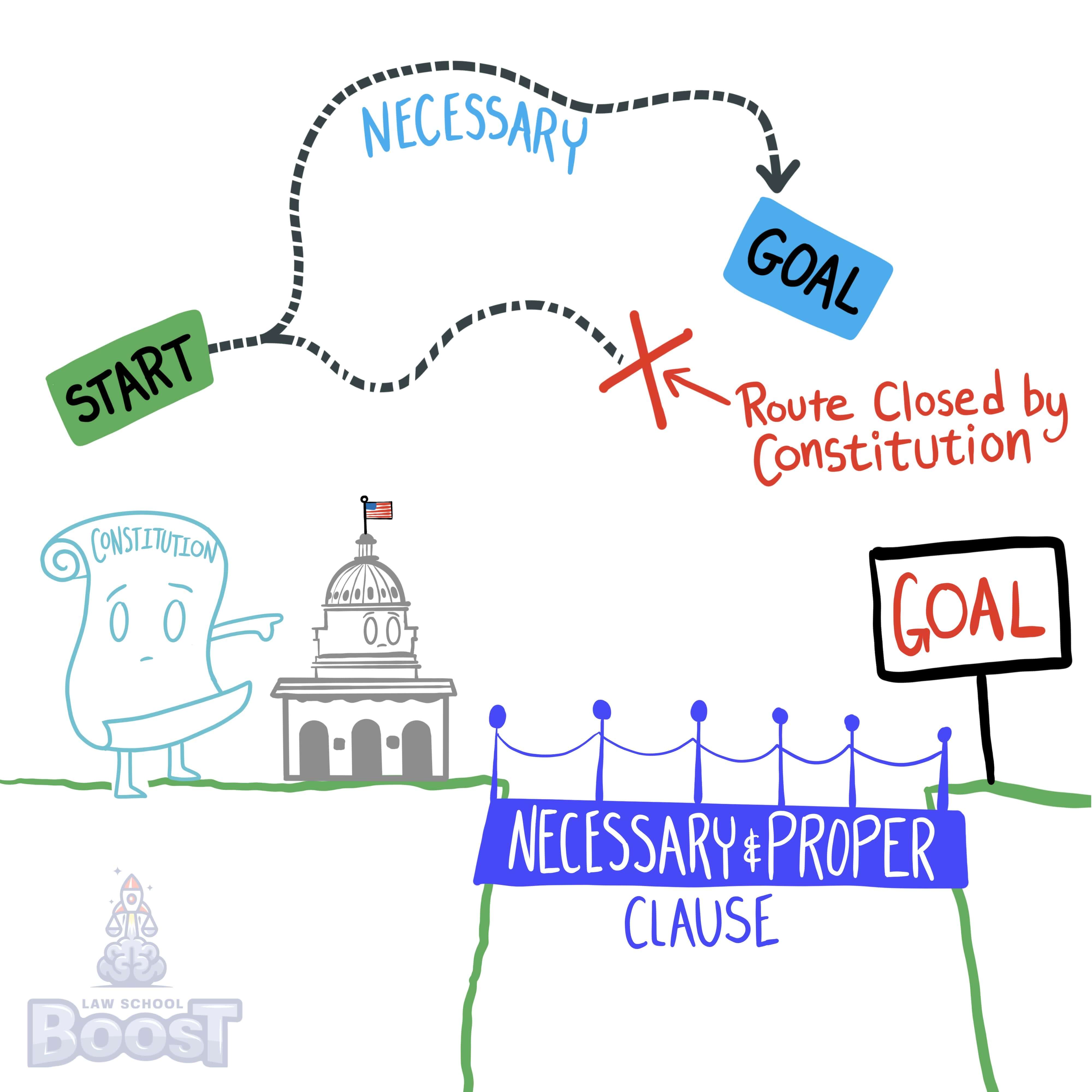🇺🇸
Constitutional Law • Congressional Authority to Act
CONLAW#018
Legal Definition
Under the Necessary and Proper Clause, Congress may choose any means not prohibited by the Constitution to carry out its authority.
Plain English Explanation
The Necessary and Proper Clause gives Congress broad authority to pass laws that help carry out its enumerated powers under the Constitution. This clause basically says that if the Constitution grants Congress a power, then Congress can use any means it wants to exercise that power, as long as those means are not specifically prohibited by the Constitution itself.
For example, the Constitution gives Congress power over interstate commerce. Under the Necessary and Proper Clause, Congress can pass any laws that help regulate interstate commerce, like laws on transportation, communication, business, etc. Congress has wide discretion on what methods it chooses.
The purpose is to give Congress flexibility in implementing its express powers. Without the Necessary and Proper Clause, Congress would be very limited if it could only use means that are directly mentioned in the Constitution. This clause allows Congress to stay adaptable and responsive in regulating national issues.
For example, the Constitution gives Congress power over interstate commerce. Under the Necessary and Proper Clause, Congress can pass any laws that help regulate interstate commerce, like laws on transportation, communication, business, etc. Congress has wide discretion on what methods it chooses.
The purpose is to give Congress flexibility in implementing its express powers. Without the Necessary and Proper Clause, Congress would be very limited if it could only use means that are directly mentioned in the Constitution. This clause allows Congress to stay adaptable and responsive in regulating national issues.
Visual Aids

Related Concepts
How may Congress use its taxing power?
May Congress prohibit harmful commercial activities?
Under Lopez, when may Congress regulate commerce?
What are the Constitutional limitations on Congress' authority to act?
What are the Constitutional limitations on federal police power?
What is the effect of the 10th Amendment on Congress?
What is the effect of the Anti-Commandeering Doctrine of the 10th Amendment?
What is the importance of Section 5 of the 14th Amendment?
When may Congress use its spending power?


